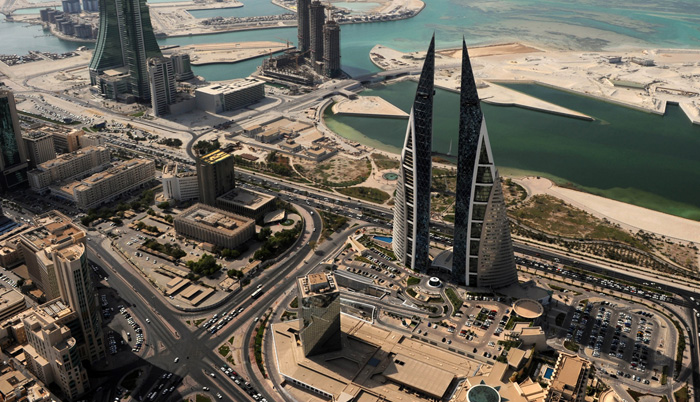![]() Home > World Business
Home > World Business
IMF Sounds Alarm as Bahrain Is Seen Needing Urgent Spending Cuts

Photographer: Phil Weymouth/Bloomberg
![]() April 12th, 2017 | 09:39 AM |
April 12th, 2017 | 09:39 AM | ![]() 789 views
789 views
BAHRAIN
Bahrain needs to make significant spending cuts to restore stability to its budget and improve investor confidence as the smallest economy among Gulf Arab monarchies tries to manage the impact of lower oil prices, the International Monetary Fund said.
The Washington-based lender said on Monday the drop in crude prices has largely offset “significant fiscal measures that were implemented,” causing the budget deficit and public debt in 2016 to stand at 18 percent and 82 percent of gross domestic product, respectively.
“A sizable fiscal adjustment is urgently needed to restore fiscal sustainability, reduce vulnerabilities, and boost investor and consumer confidence,” the IMF said in a statement after concluding regular consultations with Bahraini authorities.
Bahrain, a close Saudi ally and the home of the U.S. Fifth Fleet, has been more vulnerable to slumping oil prices than richer Gulf Cooperation Council states after authorities increased spending in response to the global recession in 2009 and civil unrest two years later. The country’s 2016 budget deficit of 1.5 billion dinars ($4 billion), which is larger than its foreign exchange assets, spurred the government to tap both domestic and international markets to fund spending last year.
More Declines?
The central bank’s foreign exchange assets fell 11 percent in January to 725.9 million dinars from December. Overall, they’re down 68 percent from a peak of 2.24 billion dinars in November 2014, according to data compiled by Bloomberg.
“We expect reserves to drop to about $1 billion by year-end on the financing of the currency account deficit,” said Carla Slim, Dubai-based economist at Standard Chartered. “This is well below reserve adequacy levels in the context of a fixed-exchange rate regime.”
Saudi Arabia’s implicit backing for Bahrain has long supported the island state’s assets. Even as the nation’s income sank and its budget deficit widened, the premium investors demand to hold Bahraini debt rather than U.S. Treasuries is lower than high yielding assets, according to JPMorgan Chase & Co. Indexes. While the difference between the two spreads is narrowing, it has been in Bahrain’s favor almost everyday since February 2012.
The IMF said fiscal measures could include valued-added taxation and further rationalizing of spending on subsidies and social transfers. “The wage bill, which is nearly 12 percent of GDP and among the highest in the GCC, can be reduced in the near term by streamlining allowances and freezing nominal wages,” it said.
Economic growth is projected at 2.3 percent in 2017, which will be “driven by strong infrastructure spending from GCC funds,” the IMF said.
Source:
courtesy of BLOOMBERG
by Glen Carey and Vivian Nereim
If you have any stories or news that you would like to share with the global online community, please feel free to share it with us by contacting us directly at [email protected]